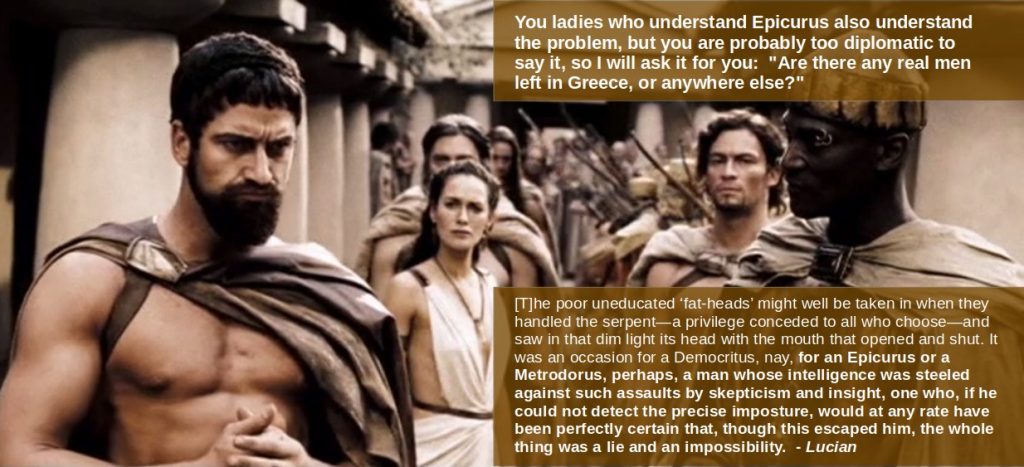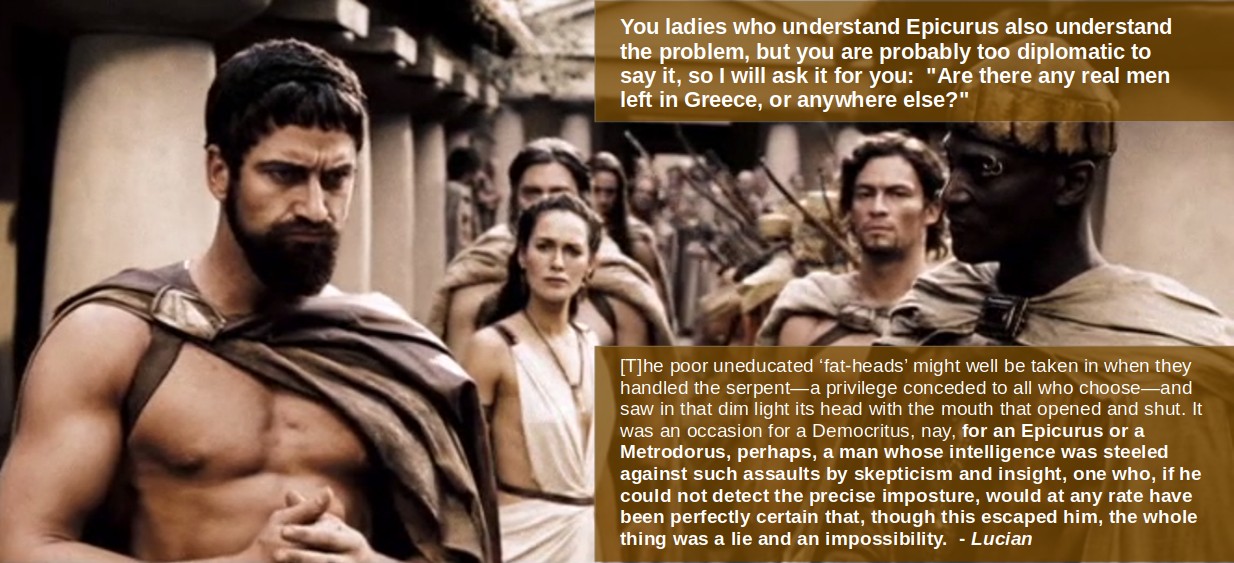Draft of a New Graphic – Where Are the Epicurean Men?
Draft of a new meme, with some commentary afterwards:

Let’s see where to start! First, I considered this a first draft in posting it, and I look forward to revising it to sharpen the issues. I definitely did not intend it as an endorsement of Sparta over Athens, although i believe that given the contextual nature of what is virtuous, there are indeed times when being organized for war as were the Spartans can be more efficient than running an army by democratic vote. I often point out to my friends in local conversation that the example of the Romans was even to appoint a dictator in times when survival is threatened (the Cincinnatus story?). I doubt very much that Epicurus would say that any form of government is ALWAYS “the best” (other than that which best preserves our lives and ability to live happily under the circumstances.)
But my main target here was not praise of Sparta but to raise a question for debate as to when and how threats to our safety and happiness should be met by “force” and not just by “debate.” I think our current times have brought so much material ease, and with it complacency, that we arguably have been, like the proverbial frog, boiled at low heat for so long that we tolerate far too many things that are – to us – “injustice” – because not conducive to our fundamental happy living.
I was more sensitive in putting this together to charges of “sexism,” because surely especially in the modern world women are able to fight with much the same potency as men. And in that sense it is sometimes very hard to separate the “ladies” from the “men” when it comes to taking charge and leading active countermeasures against threats. So for my purposes in this draft, no subtext of women being weaker or relying on men for all fighting was intended. However I have no doubt that, regardless of our aspirations, in times of physical threats it is the traditional role of men to risk their lives first, and when the men choose to hang back, it is very unfair to call on women to do so in their place.
While the graphic may overwhelm the text, the text emphasizes Lucian praising Epicurus and Metrodorus as examples of the type of men who stand up with confidence against bitter enemies. And in the full context of Alexander the Oracle Monger, from which the text comes, the Epicurean given as an example risked his life in opposing the fraudulent religious impostor.
Those are some of the things going through my mind that I would like to frame in a graphic as a means of challenging us to think about our own situations in the way that Cicero addressed one of his most famous lines, to Catiline, to the effect — “How long, O Catiline, will you go on abusing our patience?” At what point DOES our patience give out, and we resort to more active measures, rather than sitting stoically on our hands while our enemies surround us and choke us past the point of no return?

